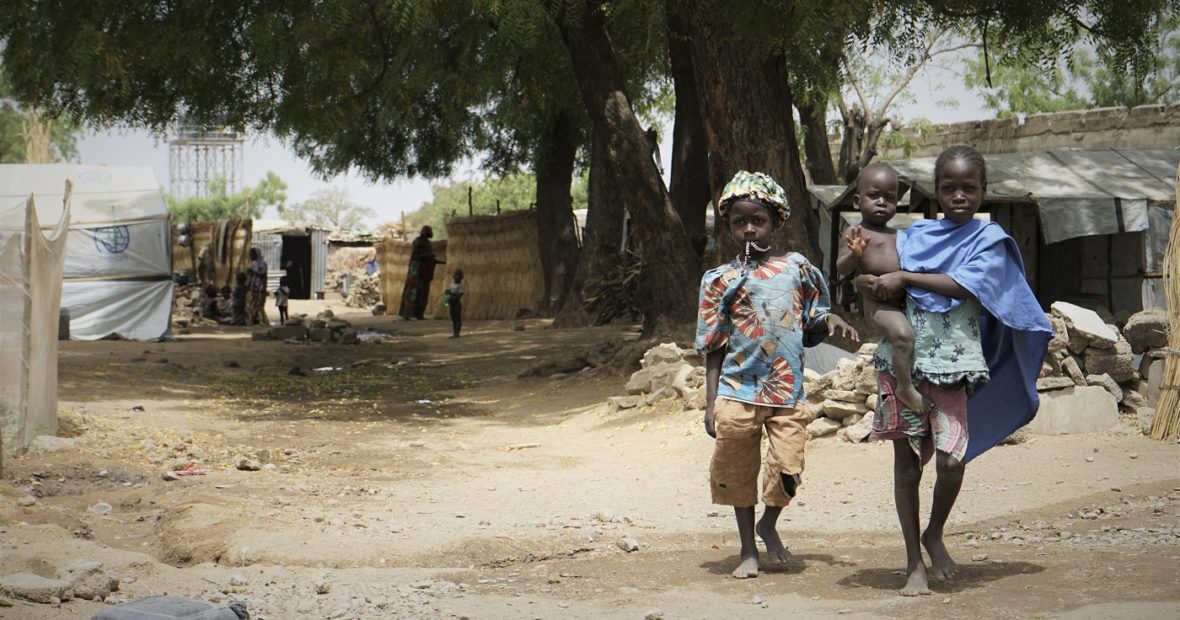The below statement was shared by ICRC President Peter Maurer at a joint press briefing at the UN Palais in Geneva on 13 September at 12 PM about the global food crisis. You can watch the full briefing here. A news release from the IFRC and the ICRC on the global food crisis can be found here
NEWS RELEASE 13 SEPTEMBER 2022
Hunger is a slow-moving crisis. Conflict, though, often propels what starts out as a dinner-table dilemma into an inescapable disaster.
In areas experiencing conflict, farming families may have to flee before crops are planted or harvested. Just as bad, climate change may mean too little or too much rain. People turn to their reserves. With hungry children to feed, they may even eat the seeds meant for the next planting season.
Conflicts cut off outside supplies, forcing markets to lie empty. The crisis expands. Families go from three meals a day to two, then one. For far too many the number drops to zero.
In April this year, we said that a disaster was unfolding largely unnoticed across Africa. It saddens me to say today this disaster storms onward, with more than 140 million people suffering acute food insecurity.
I saw the early indications in February, when I met with people in Niger who fled their homes due to conflict. Attackers stole their crops, families with malnourished children told me.
The alarm bells ring loudly in Somalia now. If a famine is declared, we know that it will already too late. Tens of thousands will have died.
A stabilization centre run by the ICRC in Baidoa has seen a five-fold increase in malnourished children needing care. 466 children last month, up from 82 a year ago. Children admitted here die without this specialized nutritional care.
We see fast action in crises like major armed conflicts, but we need faster action in slow-rolling hunger situations.
Across the Red Cross Red Crescent Movement, we take a broad view of food insecurity. We talk about and help deliver a systemic approach, such as our programme in Nigeria that has given out climate smart agricultural inputs to benefit more than 280,000 people this year.
We also insist – both publicly and privately – that fighting forces adhere to international humanitarian law to protect civilians from harm. IHL prohibits starvation as a method of warfare. It prohibits attacking or destroying crops, livestock and drinking water installations. It regulates the protection of the natural environment and rules concerning sieges and blockades.
Our role is to nudge countries into respecting these laws. When they do not the impact on civilian communities can be massive.
The United Nations General Assembly meets next week, and food security will be high on my agenda to raise with states. We know you and your media outlets have been covering this crisis. But we urge that such stories dig deep into the issue of systems – and the long-term mitigation and prevention of crisis. My wish is that we build resiliency into the fabric of humanitarian response, so that communities suffer less when violence and climate change upend lives. We must move beyond the reflex of emergency response and invest in fragile regions – health systems, water systems, and vital infrastructure.
When a child dies of hunger, it is the result of systemic failures. It’s a cycle of sadness we must escape.
I’d like to close with a short note of thanks. This news conference will be my last in Geneva. I’ve been president of the ICRC for just over 10 years and will step away from this role at the end of the month. So before leaving I wanted to say that I’ve long noted the care and commitment the Palais and Geneva press corps takes with humanitarian issues. You ask the hard questions, urging us to be better and to do more. And you cover with a human touch the suffering of those in need. This is a vital role, and I thank you for fulfilling it.
And with that said, my Red Cross colleague Francesco and I are happy to address any questions you have. First we’d like to take those questions relating to the food security crisis.



Comments